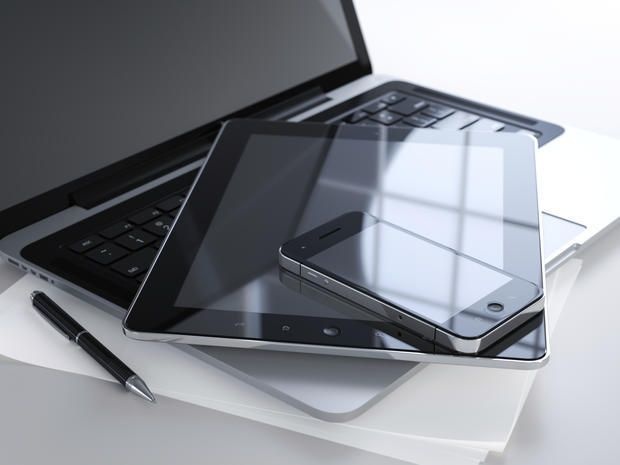
Shiny new smartphones may cause gadget envy, but when it comes to real work you still need a dependable PC.
PCs have a tough few years: sales have hit the skids as consumers and businesses have been tempted away by smartphones and tablets.
But this year the PC has been making a bit of a comeback, especially the tablet-cum-notebook hybrids such as the Lenovo Yoga range and Microsoft's Surface.
And when it comes to business the PC remains the workhouse of choice, according to TechRepublic's exclusive CIO Jury of tech decision makers. When asked: "Is the smartphone now a more important business tool that the PC?" members voted no by a margin on ten to two, showing that while smartphones may be making headlines, the PC remains the enterprise workhorse - at least for now.
"Do you want to try and assemble a sixty page monthly board of directors report on a smartphone?" asked John Gracyalny, VP of IT at SafeAmerica Credit Union, adding that while smartphones have a role to play, without a much more comfortable and efficient user interface "better speech recognition? Direct brain plug in?" it will be limited.
Tim Stiles, CIO at the Bremerton Housing Authority, made a similar point: "Our particular business will rely on the PC long into the future. Smartphones augment, however [they] will not replace the PC anytime soon for us."
Shawn Beighle, CIO at the International Republican Institute, said that while the ability to work on the go is incredibly helpful "whether it be a desktop, laptop, tablet, virtual reality or holographic device, at some point people are going to want to sit down and crank out research papers, contracts, proposals and the like, to which having a full sized keyboard and large monitors is still preferable," while David Wilson, IT manager at VectorCSP, said "the PC is where the work and deliverables are created".
Derrick Wood, CIO at Wood Group, saw the device split slightly differently, with smartphones and tablets on one side, and traditional PCs on the other. He said PCs would decline in importance over the next two years "as we leverage VDI technologies, agnostic to the end device".
But he added: "One definite is we will not go through another mass PC upgrade project dictated by an operating system upgrade (Windows 7 to Windows 10)."
While few CIOs would rank the smartphone as more important than the notebook, a number saw it being more important - alongside tablets - over the next few years.
Matt Mielke, director of IT at Innovations Federal Credit Union, felt that while the smartphone has been a welcome supplementary device "the core of our business still utilizes PCs". But he added: "Going forward, I can see this strategy slowly evolving to tablets and smartphones."
Mike McGavock, CIO of NeoHealth, said that though the PC still has its place, nearly everything you can do on a PC can be done on a smartphone: "The ability to have everything at your fingertips in or out of the office is why I say the smartphone is more important to the average user than the PC."
And Keith Golden, CIO, Econolite Group, said the two different devices are now equally important, with the smartphone "coming on strong", adding "I'd guess in a year or two the smartphone will clearly be more important, with the PC increasing relegated to comparatively small 'niche' roles", while others also saw more of a place for tablets and smartphones further in the future.
Brian Wells, associate CIO at Penn Medicine, said the smartphone might not be the most important device but is still a necessary accessory for almost all workers. "In healthcare nurses and doctors are very mobile within the hospital facility and need constant access to the electronic medical record to maintain the continuity of care for our patients."
This week's CIO Jury was:
- Richard Frisch, CTO, Global Strategy Group
- Derrick Wood, Group CIO, Wood Group
- Richard Storey, head of IT at Guy's and St Thomas' NHS Foundation Trust
- John F. Rogers, IT director, Nor-Cal Products
- John Gracyalny, VP of IT, SafeAmerica Credit Union
- Jerry Justice, IT director with SS&G Financial Services
- Shawn Beighle, CIO, International Republican Institute
- David Wilson, IT manager at VectorCSP
- Mike McGavock, CIO, NeoHealth
- Tim Stiles, CIO at the Bremerton Housing Authority
- Mike Klaus, Information Systems Manager at City of Kearney
- Matt Mielke, director of IT at Innovations Federal Credit Union



